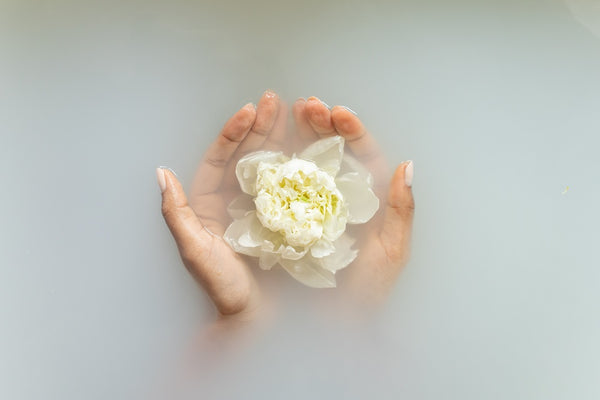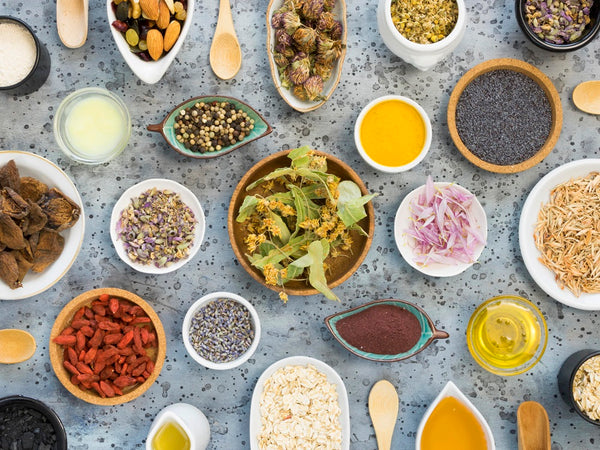In the realm of Ayurveda, the ancient system of holistic medicine, the changing seasons play a crucial role in determining the optimal lifestyle practices for each individual. One of these seasons is Sharad Ritu, the autumnal phase that spans from mid-September to mid-November. Sharad Ritu brings a unique set of environmental influences, and aligning our daily routines with these changes can significantly benefit our overall well-being.
Let us explore the ideal lifestyle to follow during Sharad Ritu, the impact of the Sun and Moon cycles on our lives, bathing habits, and why avoiding daytime napping, overeating, and more such lifestyle habits are essential during this season.
1. How is your life affected by changes in the Sun and Moon cycle?
Ayurveda recognises the profound impact of nature's rhythms on our health and well-being. The Sun and Moon cycles influence our biological clocks and energy levels. During Sharad Ritu, the days become shorter, and the nights grow longer. This transition can affect our body's internal balance.
- Daytime Activity: With shorter daylight hours, it's essential to make the most of your daytime hours. Engage in productive activities, work, exercise, and social interactions during this time.
- Nighttime Rest: As nights lengthen, embrace the opportunity for restful sleep. Ensure you get sufficient sleep at night, as it helps rejuvenate the body and mind.

2. Bathing habits
Bathing is a daily ritual that can significantly impact your health, and it's essential during Sharad Ritu:
- Warm Water: Opt for warm water for bathing to counteract the cooler autumn weather. Warm baths soothe the skin, improve circulation, and promote relaxation.
- Herbal Additions: Consider adding herbs like neem, turmeric, or rose petals to your bathwater. These herbs have therapeutic properties that benefit the skin and overall well-being.
- Oil Massage: After your bath, indulge in a self-massage (Abhyanga) with warm sesame oil or coconut oil. Abhyanga helps nourish the skin, calm the nervous system, and improve blood circulation.

3. Food & Drinking Habits
Sharad Ritu calls for a shift in your dietary choices to maintain balance during the changing season:
- Balanced Diet: Focus on a balanced diet that includes warm, nourishing foods. Incorporate seasonal fruits and vegetables like pumpkins, sweet potatoes, and figs. Avoid excessive consumption of raw or cold foods, as they can disturb digestion.
- Hydration: Stay adequately hydrated, but favour warm or room-temperature water over cold drinks. Herbal teas with spices like ginger, cinnamon, and cardamom can help maintain warmth and aid digestion.
- Avoid Overeating: Resist the temptation to overeat, especially during festivals and gatherings. Overindulgence can lead to digestive discomfort and imbalance.

4. Dinacharya & Ratricharya
Dinacharya (daily routine) and Ratricharya (nightly routine) are integral aspects of Ayurveda that guide us in maintaining a balanced lifestyle during Sharad Ritu:
- Morning Routine: Begin your day with practices like tongue scraping (Jihwa Prakshalana), oil pulling (Gandusha), and gentle stretching exercises. These rituals help remove toxins, improve oral hygiene, and prepare the body for the day.
- Meals: Stick to regular meal timings and avoid heavy meals late in the evening. Dinner should be consumed a few hours before bedtime to aid digestion.
- Night Routine: Wind down in the evening by reducing screen time, practising relaxation techniques like meditation or deep breathing, and creating a calming bedtime environment.

5. Yoga Postures
Yoga is a powerful tool for maintaining physical and mental balance during Sharad Ritu. Here are some yoga postures that are particularly beneficial during this season:
- Balasana (Child's Pose): This gentle forward bend stretches the spine and helps release tension in the back and neck.
- Vrikshasana (Tree Pose): A balancing pose that promotes stability and concentration, helping you stay grounded during the season's change.
- Surya Namaskar (Sun Salutation): As the name suggests, this sequence honours the sun and warms up the body, making it an excellent choice for Sharad Ritu.
- Savasana (Corpse Pose): This relaxation pose is vital for calming the nervous system and promoting deep relaxation.

6. Napping during the day, exposure to sunlight, and excessive eating should be avoided during this season.
While the autumnal breeze may be inviting for a daytime nap, Ayurveda advises against it during Sharad Ritu:
- Avoid Daytime Napping: Excessive daytime sleep can lead to sluggishness and disrupt your nighttime sleep pattern. Instead, try to maintain consistent sleep-wake hours.
- Moderate Sun Exposure: While sunlight is essential for overall health, excessive exposure during the midday heat can dehydrate and harm your skin. Aim for moderate sun exposure in the early morning or late afternoon.
- Mindful Eating: Overeating or indulging in heavy, rich foods can overwhelm your digestive system and contribute to Vata imbalance. Practice mindful eating by savouring each bite and listening to your body's hunger cues.

Sharad Ritu is a time of transition, and aligning your lifestyle with the changing season is vital to maintaining physical and mental balance. By following the Ayurvedic principles outlined above, you can nurture your well-being and thrive during this beautiful autumn season.
Ayurveda offers a timeless guide to harmonising our lives with nature's rhythms, promoting health and vitality throughout the year.

Comments (0)